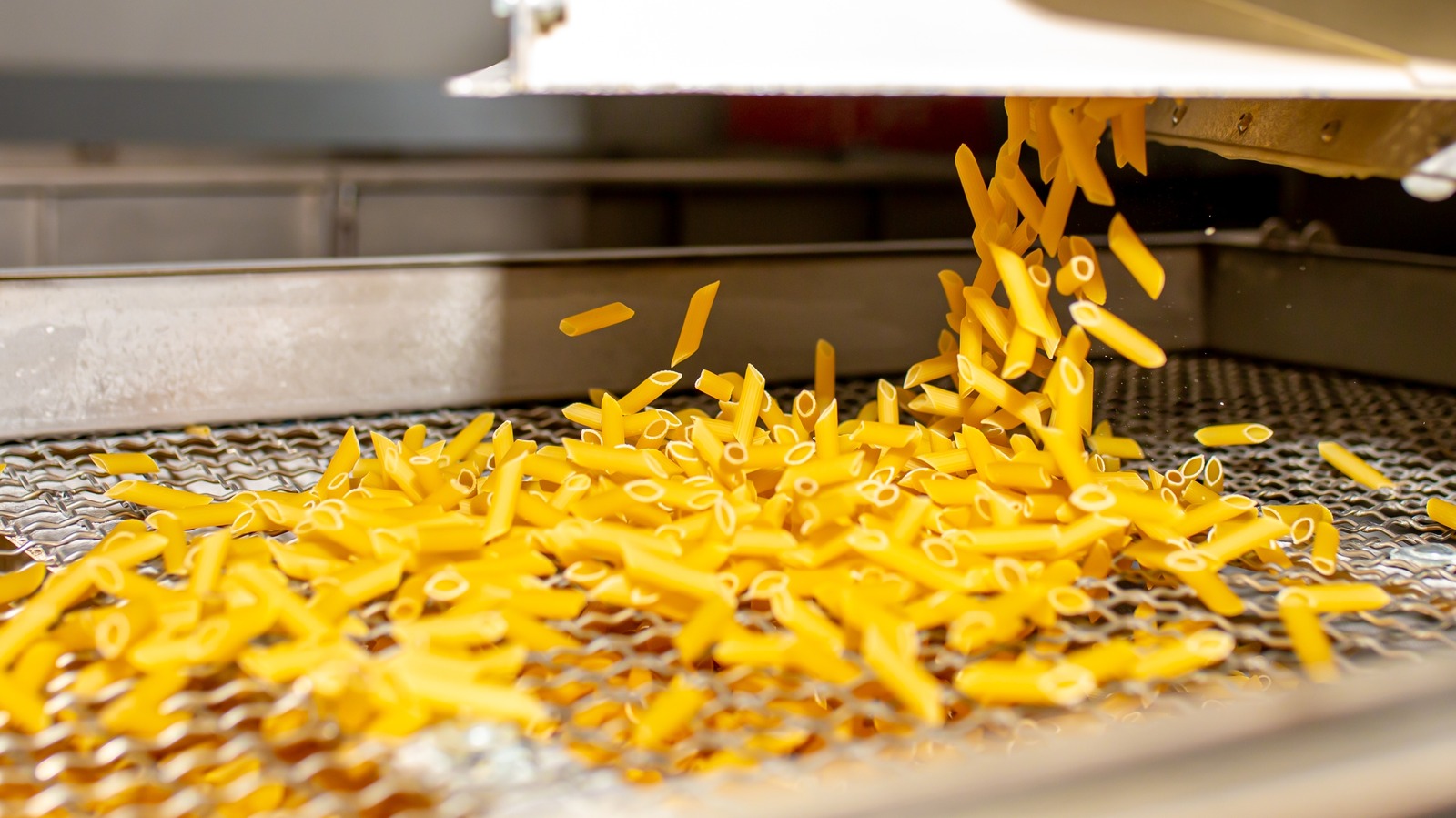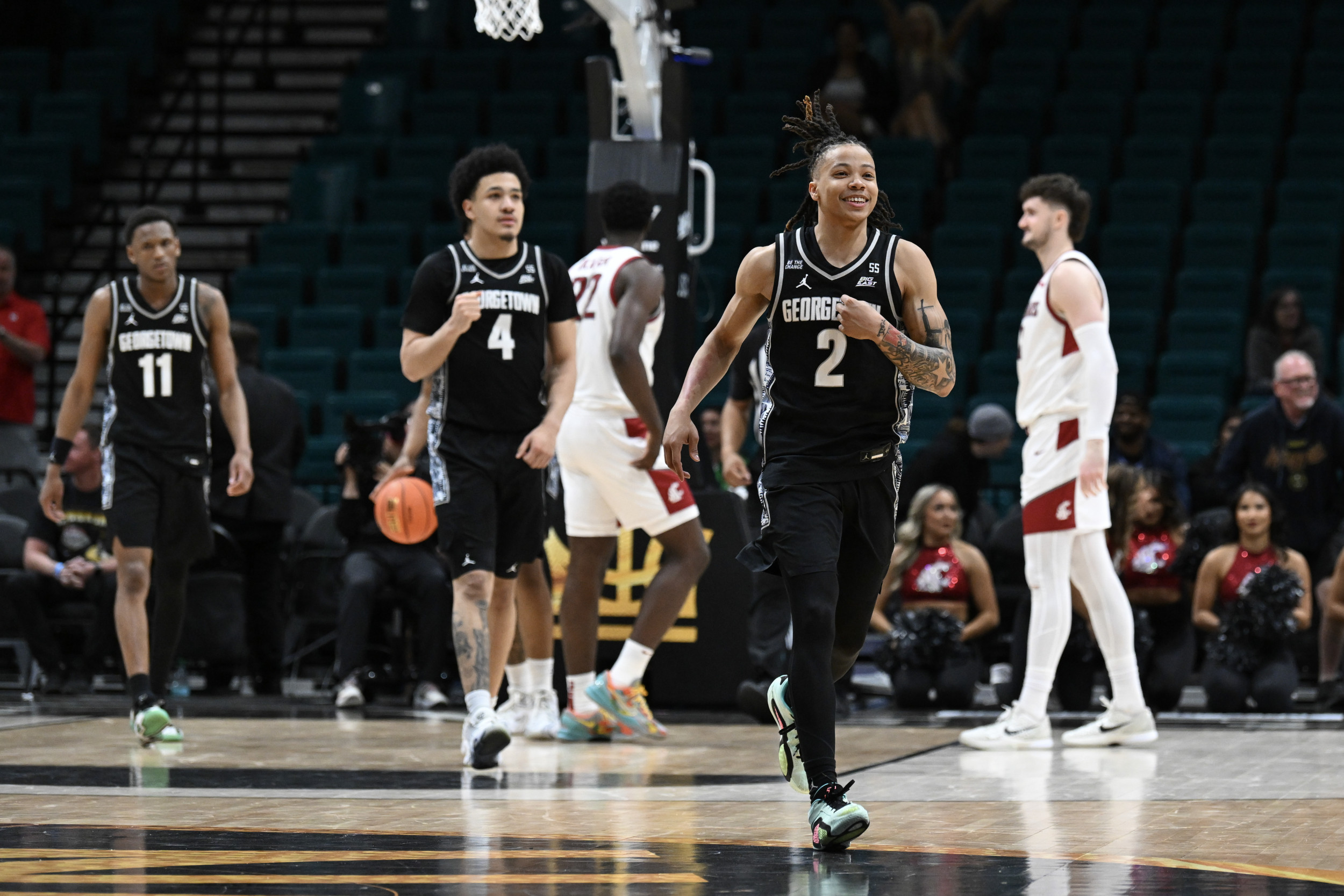
Food recalls are serious business. Food recalls signal that a food is not safe for consumption, whether that means the food is unsafe for the entire population in general or unsafe for just specific parts of the population (such as if a food recall is issued due to an undeclared allergen being included in the food, which could pose issues for those with certain allergies). Eat risky recalled foods and you could not just fall seriously ill.
People have died in connection with recalled foods. Luckily, most food recalls are widely publicized so that you can take precautions if a food you've recently eaten or purchased has been recalled. Keep an eye on the news and you'll see major recall warnings reported on a regular basis (unfortunately, ).

If you haven't been paying attention to recalls as of late, though, you may've missed some of the biggest or most important. These are just a handful of the pasta recalls that have affected millions over the last 15 years. Not a big pasta eater? Consider reading up on the the , or , instead.
Reser's Fine Foods macaroni and cheese (2024) It's important to keep your perishable foods cold. If you don't, and leave perishable foods outside of your fridge for more than two hours, you could risk food poisoning. The same rules around proper refrigeration that apply to home cooks apply to major food manufacturers, as well.
That's why, in late 2024, when Reser's Fine Foods discovered that some of its macaroni and cheese (specifically its 12-ounce American Classics Macaroni & Cheese White Cheddar and 12-ounce American Classics Macaroni & Cheese products) had been affected by a refrigeration unit malfunction, the brand decided to issue a voluntary recall. The U.S Food and Drug Administration (FDA) categorized the recalled products as a Class II risk, which means the FDA feels that use of the products could "cause temporary or medically reversible adverse health consequences," while the chances of a "serious" health consequence is "remote.
" The recall didn't only apply to macaroni and cheese, though. They were part of a greater recall that impacted more than 10 refrigerated food items distributed throughout California, Illinois, Minnesota, North Dakota, and South Dakota. Seviroli Foods chicken Alfredo (2024) Listeria bacteria is a major cause of food-borne illnesses and can cause a range of serious symptoms, from the typical expected gastrointestinal distress to even convulsions, and the symptoms can pop up as late as a month after you've eaten contaminated food.
A listeria infection is particularly serious for pregnant individuals, infants, the elderly, and those with compromised immune systems, for whom an infection can be fatal. In other words, listeria isn't something you want to mess around with. Accordingly, when Seviroli Foods discovered that the chicken in its chicken Alfredo kits were contaminated with listeria, the brand issued a voluntary recall impacting 1.
36 million pounds of the kits. The FDA gave the products its highest, most dangerous risk ranking, Class I, which means that the FDA feels using a product could result in "reasonable probability" of serious, adverse health consequences or death. The recall was connected to a greater recall at the time, from BrucePac, the company that supplied the chicken for the Alfredo kits.
BrucePac recalled 75 items, including the kits, that contained a total of nearly 10 million pounds of listeria-infected meat. Hungryroot and Mama Mancini's stuffed shells (2024) In November 2024, the FDA recalled Hungryroot Ricotta Stuffed Shells and Mama Mancini's Stuffed Shells with Sauce and Mozzarella Cheese, two products both produced by Joseph Epstein Food Enterprises, Inc. Both pasta products were found to be potentially contaminated with listeria.
As such, the FDA gave the products a Class II risk ranking, meaning eating the pasta products could cause temporary or reversible health issues, though more serious health issues are less likely. More than 2,000 cases of pasta were impacted, throughout California, New Jersey, Delaware, Minnesota, Arizona, and Indiana. The good news? The brands said that the pasta never made it to consumers, and the issue was caught before the items reached store shelves.
So what's the difference between a brand's voluntary recall and an FDA-mandated recall? Simply put, if the recall is voluntary, the brand is taking it upon themselves to recall the item. In an FDA-mandated recall, the FDA has told the brand they must recall the item. However, in both instances, the FDA is involved and makes sure that consumers are protected and the issue that caused the recall is addressed.
Michelina's frozen fettuccine (2024) Apparently 2024 was a big year for listeria. Yet another pasta product was pulled from shelves due to potential listeria contamination, this time the Michelina's brand's frozen Fettuccine Alfredo Entree with Chicken & Broccoli. Unfortunately, no, freezing doesn't kill listeria bacteria; it does, though, stop the bacteria from spreading further.
Michelina's was one of the many brands impacted by the aforementioned BrucePac meat and poultry recall as, yes, the listeria-infected chicken made its way into Michelina's fettucine Alfredo. Shortly after the recall was announced in October 2024, a wrongful death lawsuit was filed against BrucePac, with a woman claiming that her 12-year-old daughter had died after eating one of the impacted products. Another individual filed a class action lawsuit against BrucePac; the individual who filed the lawsuit noted that she became ill after eating one of the impacted products, and that the products sold to her were "worthless" due to the contamination.
Whitson's Food Service chicken Alfredo (2023) In some cases, a food recall isn't due to the food being contaminated by some horrible, food-borne illness-causing bacteria. In some cases, a recall occurs simply because the food's packaging does not specify if the food contains a particular allergen. This was the case in 2023 when Whitson's Food Service recalled nearly 9,000 pounds of frozen, ready-to-cook chicken Alfredo with broccoli and penne pasta meals.
The meals contain eggs, but that fact was not clearly made known on the product's labels. Unfortunately, these products went out to institutions like schools, creating possibility for extensive impact. Egg allergies are one of the most common food allergies particularly in young children under the age of six, with estimates that about 2% of children have an egg allergy.
Egg allergy symptoms can be as mild as hives or they can be as extreme as fatal anaphylaxis, necessitating the use of an EpiPen and similar medical care. Bellissio Foods spaghetti (2021) Very similarly, in 2021, Bellissio Foods recalled nearly 4,000 pounds of spaghetti with meat sauce products sold under the Michelina's brand, due to the product containing soy, without soy being listed as a contained allergen on the product's label. Instead, the label only calls out wheat as a contained allergen.
The manufacturer specified that this product doesn't typically contain soy, which is why the label doesn't list it, but suspected that perhaps the product's ingredients "co-mingled" with some other, soy-containing ingredients. Soy allergies are less common than egg allergies, with less than a half-a-percent of children exhibiting a soy allergy. Like egg allergies, soy allergies affect young children the most, but those who do have a soy allergy are more likely to have another major food allergy, as well, such as an allergy to milk, egg, or peanuts.
Allergic reactions to soy range from mild to severe and life-threatening. Avanza Pasta pasta products (2021) In 2021, Avanza Pasta recalled more than a ton of meat-containing pasta, like ravioli and tortellini, that was not produced without the proper inspections conducted by the US Department of Agriculture's Food Safety and Inspection Service (FSIS). Without these inspections, the products could be dangerous, or they could not, but the chance is there.
The recall covered a large swathe of products, produced over a very long time period, from October 2019 to March 2021. Affected products were sold under an array of brand names, too, including Ambrosino's, Calabria Imports, Conte Di Savoia, Countryside Fresh Markets, Frankie's Deli Italian Market and Café, Frank's Deli, Gene's, MarketPlace on Oakton, Minelli Meat & Deli, Nature's Best, Piatto Pronto, Prisco's Family Market, Tony's Italian Deli, Vesuvio Bakery and Deli, and Fratello's. The products were distributed in stores and restaurants in Illinois, Indiana, and Wisconsin.
Lean Cuisine fettuccini Alfredo (2020) In May 2020, Nestlé issued a recall for its Lean Cuisine frozen fettuccine Alfredo meals due to undeclared ingredients, including a major allergen. Due to a packaging issue, Nestlé said, some of the wrong frozen pasta meals ended up in the frozen fettuccine Alfredo boxes. The included meals were actually frozen chicken fettuccine, not fettuccini Alfredo (sans chicken).
As such, these boxes' ingredients labels were wrong and the contained meals included both chicken and soy. While the chicken perhaps is not such a big deal — though you'd certainly like to know if you're accidentally going to be eating chicken, if you're trying to avoid meat products — the mix-up could have been fatal for anyone with a soy allergy. Thankfully, Nestlé said that the recall only impacted boxes produced on one day, April 22, 2020, and then apparently the packaging issue was realized and addressed.
At the time of the recall release, there had been no confirmed reports of adverse reactions related to the mix-up. Conagra Brands spaghetti and meatballs (2017) Another major food manufacturer churning out a large number of household name brands, Conagra likewise issued a recall related to undeclared allergens and misbranding, in 2017. The recall impacted a range of canned pasta and meatball products sold under brands such as Chef Boyardee, Essential Everyday, Libby's, Hy-Top, Del Pinos, Hannaford, Food Club, and Food Hold.
The problem? The items contained milk, though that wasn't listed on the label. Uniquely, Conagra wasn't at fault this time. Instead, the supplier who provided the bread crumbs for the items contacted the manufacturer to let them know that there was potential milk contamination on their end.
Like egg allergies, milk allergies are one of the most common allergies among children. While wheezing, vomiting, hives, and gastrointestinal distress are common symptoms of a milk allergy, fatal anaphylaxis is also possible. The FSIS gave the recall a Class I risk ranking, indicating "reasonable probability" of serious, adverse health consequences or death.
Home Maid ravioli (2016) Home Maid Ravioli Company, Inc., had really committed a litany of food safety sins when it needed to issue a recall in January 2016. The brand recalled boxes and bags of a whole host of pasta products, more than 20 different products in total and nearly 40,000 pounds of product, that had been distributed to wholesale and retail customers throughout California.
Not only had the products not been produced under proper federal inspection, but they'd also been mislabeled without declaring certain ingredients, including whey and pork. Whey is one of the proteins in milk that can cause a milk allergy (the other is casein), so if an individual has a milk allergy, there's a chance that eating foods with whey in them could cause them to have an allergic reaction. While pork is not a major allergen, there are still plenty of individuals who refrain from eating pork due to religious or cultural reasons.
Lean Cuisine frozen meals (2016) Nestlé had another major Lean Cuisine recall in 2016, when the brand recalled not just Lean Cuisine products but several of its most popular brands due to a fear that consumers might find broken glass in their food. Specifically, Nestlé thought that the glass pieces may've been mixed in with some spinach used in products like DiGiorno pizzas and Lean Cuisine pastas. Lean Cuisine products impacted included Lean Cuisine's Spinach and Mushroom Pizza, Mushroom Mezzaluna Ravioli, Ricotta and Spinach Ravioli, Spinach Artichoke Ravioli and Spinach, Artichoke & Chicken Paninis.
The recall also impacted a few Stouffer's frozen pasta items, including the brand's . While many recalls are issued before consumers notice any problems, or even before products get to store shelves where consumers may buy them, this wasn't the case for Nestlé with this recall. The recall was only issued after consumers began reporting finding glass in pizza and ravioli products.
Kraft macaroni and cheese (2015) In another case of "recalls occurring due to sharp and scary non-food items ending up in your food," in 2015, Kraft Foods Group recalled about a quarter of a million cases of Kraft Macaroni & Cheese boxed dinners due to worries that they may contain metal shards. The cases of mac and cheese had been shipped out to not just consumers in the United States, but also several other countries, Kraft reported. The company also said, at the time of recall release, that it had received consumer complaints from eight different people who'd found metal in their mac.
How exactly did the metal get into the macaroni and cheese? A spokesperson for Kraft told the that it was theorized a piece of stainless steel was trapped against a piece of metal equipment, and the equipment's movement resulted in small pieces of the metal essentially being shaved off and then falling into the food during the manufacturing process. Kraft Cheeseburger Mac (2014) In 2014, Kraft — well, technically one of Kraft's food processors — voluntarily recalled nearly 2 million pounds of cheeseburger mac, specifically Kraft Velveeta Cheesy Skillets Singles Ultimate Cheeseburger Mac. The affected products were produced over nearly a year's time, May 2013 through January 2014, before being distributed to retail locations all across the country.
The issue for Kraft this time was the product's labels did not declare the inclusion of two allergens, hydrolyzed soy protein and dried soy sauce. Obviously, these are going to be a problem for anyone with a soy allergy, but what exactly is hydrolyzed soy protein? It's a food additive that is used in a vast number of manufactured food items and that's typically used as a flavor enhancer for items that contain meat. Even if the hydrolyzed soy protein is used in small amounts, it can still cause an allergic reaction in those that have a soy allergy.
Real Pasta (2013) Real Pasta produced a number of branded pasta products that were recalled in 2013 due to multiple issues, including the fact that the products were processed without benefit of inspection, and they were misbranded when repackaged. Some of the products could have contained soy, but that was not declared on the packaging. Approximately 25,000 pounds of pasta products were impacted (though only about 7,500 pounds of pasta products were recovered over the course of the recall), under brands including Angelina Foodservice, Deer Park Ravioli, K-Bella, La Gustosa Ravioli, NY Ravioli and Pasta, Pasta Del Mondo, Queen Ann Ravioli, Raffetto's, San Marco Ravioli, Serino's Italian Foodservice, and Vitamia.
The FSIS deemed the recall a Class I risk, indicating that there was a reasonable probability that eating these products would cause serious, adverse health consequences or death. This could largely be due to the lack of benefit of inspection. Stouffer's lasagna (2012) In 2012, Nestlé recalled nearly 17,000 pounds of Stouffer's frozen lasagna boxes that contained, not lasagna, but stuffed peppers.
It's not the box mix-up that resulted in the recall, though. Instead, the issue lies within the fact that Stouffer's stuffed peppers contain Worcestershire sauce, which contains anchovies, a possible allergen. If someone were to buy one of the frozen lasagnas, open it up, see that it was stuffed peppers instead, and decide to heat and eat it anyway, they could've suffered an allergic reaction, as there's no information on the packaging to warn them of the peppers' ingredients.
Nestlé reported that it had received multiple complaints of the wrong items being in the lasagna boxes, and theorized that someone had left the lasagna packaging materials in their machinery, after moving on to packaging stuffed pepper entrées, resulting in lasagna boxes going out containing the stuffed peppers. Lean Cuisine meatballs (2011) In 2012, Nestlé recalled even more Lean Cuisine frozen meals. This time, it was the Lean Cuisine Simple Favorites Spaghetti with Meatballs meals that were affected.
Nestlé reported that it had received multiple consumer complaints of red plastic bits being found in the meals' meatballs. While the consumers did not report any injuries that had occurred due to the plastic, it's still not exactly what you want to find in your meatball. It seems, though, that Nestlé didn't quite learn from this incident, as, more recently, in mid-March 2025, the brand issued a that contained "wood-like" foreign materials.
Again, consumers complained to Nestle, bringing the issue to the company's attention. Unfortunately, in this case, one consumer did report choking on the material. Impacted items include: Lean Cuisine Butternut Squash Ravioli, Lean Cuisine Spinach Artichoke Ravioli, Lean Cuisine Lemon Garlic Shrimp Stir Fry, and Stouffer's Party Size Chicken Lasagna.
Recommended.















